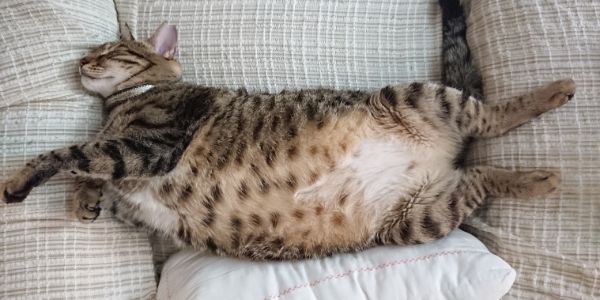Fatty Liver Disease in Cats: What to Watch Out for
Everyone wants their cat to stay in good health for as long as possible, and with regular physical exams at the vet, you can make it easier to spot health issues early on. Unfortunately, many health issues can affect cats and cause a reduced quality of life or even a shorter lifespan. Some of the ailments that can affect our furry friends can also affect humans as well, and one of those is fatty liver disease.

What Is Fatty Liver Disease?
Fatty liver disease, or hepatic lipidosis, is characterized by an excessive accumulation of fatty tissue in the liver. When cats suffer from the condition, it’s referred to as feline hepatic lipidosis and is currently the most common liver disease found in cats throughout the country.
Causes of Fatty Liver Disease in Felines
There are many causes of this disease in cats, but generally speaking, anything that causes your cat to decrease their food intake significantly is considered a risk factor for developing this condition.
Additionally, obesity in cats is often related to the development of feline hepatic lipidosis. No single sex or breed of cat is more affected than others, but adult, middle-aged cats are the most commonly affected.
The condition can also be a secondary effect of other diseases like pancreatitis, diabetes, cancer, and inflammatory bowel disease.
Symptoms to Look Out for
There are a few particular symptoms that could point to fatty liver disease. Some of these include:
- Reduced energy or lethargy
- Vomiting
- Diarrhea
- Constipation
- Jaundice
- Drooling
- Physical weakness
- Rapid weight loss
- Changes in eating habits
These symptoms are specifically correlated with fatty liver disease but could also point to other health issues. You should plan a trip to the vet anytime your cat’s behavior or appearance changes significantly.
How Do You Treat Fatty Liver Disease in Cats?
Nutritional intervention is the most commonly known treatment. In certain situations, your vet might recommend a feeding tube to make sure your cat gets enough nutrients until they can eat on their own again. Most cats can recover from this condition with early detection and proper treatment.
Support a Happy, Healthy Life for Your Cat with Feline Medical Clinic
If you notice a change in your cat’s health or well-being, don’t wait. Contact us today at Feline Medical Clinic to set up your appointment.